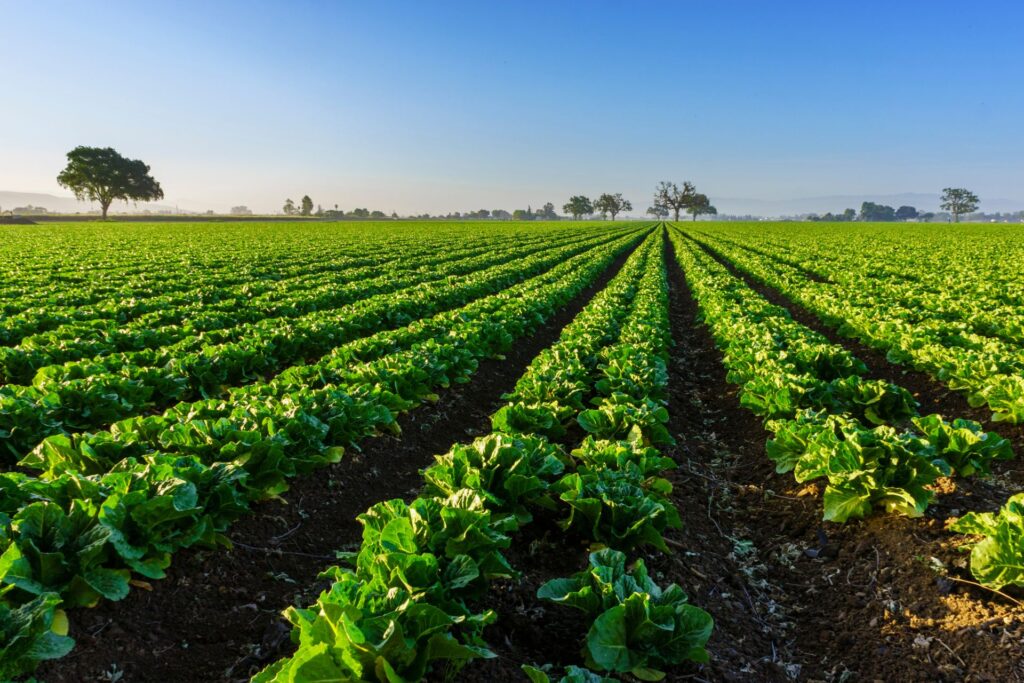Food Systems at the Heart of COP28: Multistakeholder Collaboration is Key

|
Listen to this story:
|
As COP28 kicks off in Dubai, businesses, policymakers, and civil society are increasingly recognizing the profound impact of food systems on the world’s most pressing social and environmental challenges.
Since the UN Food Systems Summit in 2021, significant progress has been made in addressing these challenges. Over 120 countries have adopted national food systems pathways, recognizing the importance of living wages and scaling science-based solutions. Businesses have also taken action, with initiatives like Nestlé’s Income Accelerator Program and OCP’s Al Moutmir outreach initiative demonstrating the potential for private sector involvement.
Despite these advancements, much more needs to be done to ensure a sustainable food system that can support 9+ billion people within planetary boundaries by 2050. Currently, food producers make up almost two-thirds of those in extreme poverty, 3.1 billion people struggle to afford healthy diets, and agricultural systems are already feeling the impacts of climate change. Moreover, the land use sector accounts for 23% of global greenhouse gas emissions and is a primary driver of biodiversity loss.
Food Systems Must Be a Core Focus of Climate Change Solutions
COP28 presents an unprecedented opportunity to put food systems at the heart of efforts to address climate change. The UAE COP28 Presidency’s Food Systems and Agriculture Agenda aims to drive transformative change across food and agriculture systems to secure a sustainable future for all. WBCSD, as a member of the COP28 Presidency’s Non-State Actor pillar, has been providing expert advice on key agriculture and food issues.
The Role of Governments in Integrating Food Systems into National Action Plans
While commitments are encouraging, they must be translated into concrete action. WBCSD calls on governments to integrate food and land use into their Nationally Determined Contributions (NDCs) and National Adaptation Plans (NAPs) to ensure that ambition equates to change. Additionally, the UN Framework Convention on Climate Change (UNFCCC) should fully integrate food systems across its process as a key pillar of change.
The Private Sector’s Critical Role in Driving Transformation
The private sector and other Non-State Actors play a crucial role in delivering the changes needed. The UN Climate Change High Level Champions are coordinating a multistakeholder Call to Action to transform food systems, bringing together businesses, farmer groups, civil society organizations, cities, and others. WBCSD is mobilizing the private sector to contribute to this shared vision and ensuring that ambitions are matched by action.
Accountable Action is Essential
WBCSD is working with the World Benchmarking Alliance (WBA) to develop a Progress Update to report on companies’ progress since 228 senior executives signed the Business Declaration on Food Systems Transformation at the UN Food Systems Summit in 2021. This commitment to accountability ensures trust and transparency in corporate action.
Prioritizing Transformation
To achieve the transformation needed, businesses must drive action across key global solutions, regions, and value chains. Regenerative agriculture, a critical approach to meeting the needs of present and future generations while sustaining farmer livelihoods and preserving nature, is a key focus area.
Healthy and Sustainable Diets
Healthy and sustainable diets are essential for human and planetary health. Crop diversification, food product reformulation, and diverse proteins are essential to enable dietary options that are good for people, the planet, and our health.
A Fit-for-Purpose Corporate Performance and Accountability System
To ensure trust and transparency, a fit-for-purpose Corporate Performance and Accountability System (CPAS) including disclosure of scope 3 emissions and harmonization of methodologies, standards, and reporting requirements is essential.
Related Article: Microsoft and Team Up for AI-Driven Climate Monitoring at COP28
Multistakeholder Collaboration is Key to Transformation
Systemic-level change cannot be achieved without collaboration. WBCSD is committed to working with governments and other stakeholders to deliver the step change in ambition needed. We urge policymakers to leverage the food sector’s unique capabilities and take a systemic approach to food and agriculture, addressing interrelated imperatives such as inequality, climate change, biodiversity loss, and food and nutrition insecurity. Food system sustainability must be integrated throughout decision-making, through collaboration across boundaries of ministry, nation, and stakeholder groups. Policy must serve to incentivize and enable business accountability, ensuring thorough reporting and disclosure.
In conclusion, COP28 provides a crucial opportunity to drive public-private collaboration and accelerate action for food systems transformation. By working together, we can accelerate action towards regenerative and equitable systems producing nutritious food for all. This is the goal WBCSD is striving for at COP28 and in 2024.










